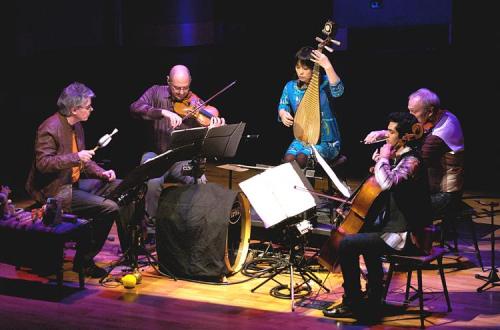The Kronos Quartet has been politically engaged since its founding in 1973, and their forays into world music carry political messages as well as aesthetic ones. Inevitably, these ventures have enmeshed the group in the anxious narratives surrounding the world music phenomenon.
Critics cite the appropriation and alienation of non-Western musics and techniques as economic and cultural capital for first-world performers, entrepreneurs, and recording companies, while admirers cite sensitivity and homage, cultural exchange, and a faith in the intercultural transcendence of aesthetic values that enacts a basis for peaceful cooperation.
Although the group’s continuing commitment to crossing cultural borders and raising political issues has been branded as hypocritical in the context of their signing with Nonesuch Records, which is owned by the media giant Time Warner, their efforts should command respect from those who seek to discredit the myth that music can—and should—exist in an autonomous world apart from that of society.
This according to “Postmodern eclecticism and the world music debate: The politics of the Kronos Quartet” by David Bennett (Context: A journal of music research 29–30 [2005] pp. 5–15). Above, the quartet performs with the pipa player Wu Man; below, with the Azerbaijani muğam singer Alim Qasımov and his ensemble.



